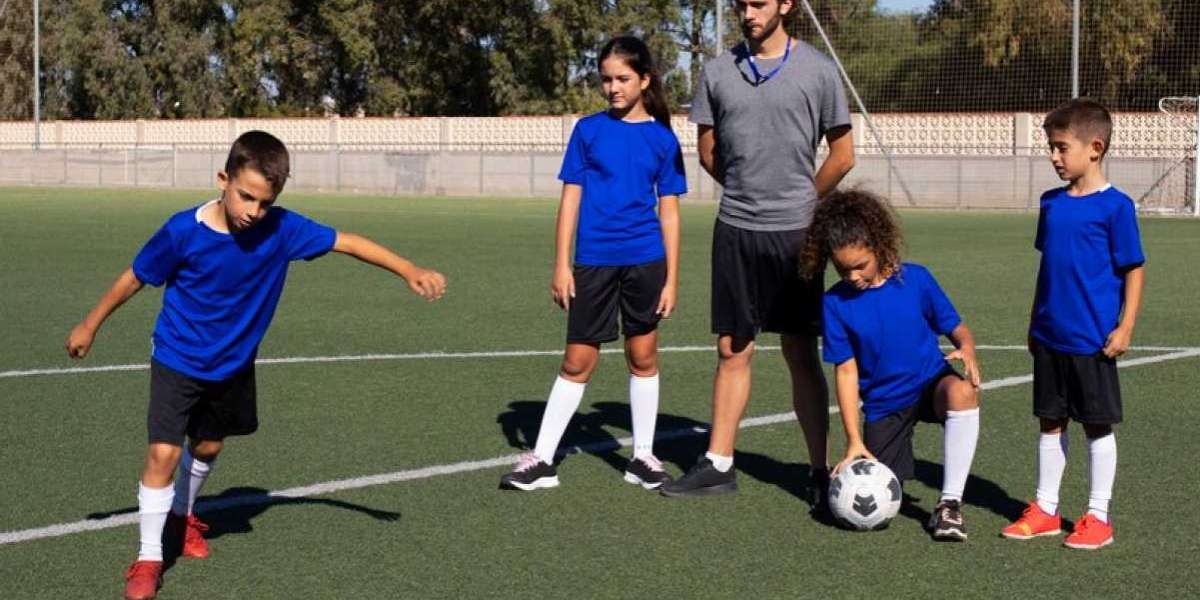For parents and aspiring players, the idea of joining an academy can be exciting, but it often comes with questions: What does a typical day look like? What kind of training will players undergo? And how does the academy support a player’s growth on and off the field?
In this article, we’ll take an inside look at what you can expect from a youth development soccer academy, from the training regime to the off-field experiences that contribute to a player’s all-around development.
Structured Training Programs
At a youth development soccer academy, the primary focus is skill enhancement. These academies are designed to cater to players of various ages and skill levels, from beginners to those aiming for professional careers. Training is usually broken down into different components to target specific areas of improvement:
Technical Skills: Players spend a significant amount of time developing their technical abilities, including dribbling, passing, shooting, and receiving. Coaches break down each movement to its core elements, allowing players to fine-tune their skills with precise feedback.
Tactical Understanding: It’s not just about raw talent; tactical awareness is crucial. Academy players learn how to read the game, understand positioning, and execute team strategies. From learning when to press to recognizing key moments for attacking or defending, tactical training helps players become smarter on the field.
Physical Fitness: Soccer requires a mix of endurance, strength, speed, and agility. The academy offers fitness sessions that focus on conditioning the body to meet the physical demands of the sport. Players engage in exercises designed to increase stamina, improve quickness, and reduce the risk of injury.
Mental Toughness: Many academies also emphasize the development of mental resilience. Young athletes are encouraged to build confidence, deal with pressure, and maintain focus under challenging circumstances. Building a winning mindset is as important as technical and physical prowess in soccer.
Coaching Staff
The backbone of any youth development soccer academy is its coaching staff. These professionals are often former players or coaches with a wealth of experience in the game. They are dedicated to providing personalized guidance to players at all levels of their development. Coaches create individualized development plans based on each player’s strengths and areas for growth.
In addition to technical guidance, coaches also serve as mentors, helping players navigate the emotional ups and downs that come with competitive sports. Their role extends beyond merely teaching soccer; they are integral in instilling discipline, leadership, and teamwork.
Competitive Environment
While training is the core of development, playing games and participating in competitive matches are key aspects of growth. A good academy regularly organizes friendly matches, regional tournaments, and even participation in leagues to provide players with real-world experience in high-pressure situations.
Competing against top-level talent pushes players to elevate their game, identify weaknesses, and develop new strategies for success. This competitive aspect is essential for any player with ambitions of playing at higher levels, such as college or professional soccer.
Supportive Facilities and Resources
Most youth development academies are equipped with top-notch facilities that support player growth. This includes access to high-quality pitches, fitness centers, recovery rooms, and even video analysis tools that allow players to study their performance in detail.
Furthermore, some academies partner with medical professionals, sports psychologists, and nutritionists to ensure players have all the resources they need to succeed. These holistic support systems help athletes stay in peak physical condition, maintain their mental health, and fuel their bodies for optimal performance.
Off-Field Development
Youth development is not just about soccer skills; it also involves personal growth. Academies often incorporate off-field programs, such as academic support, leadership training, and character-building activities, to ensure players develop into well-rounded individuals.
Young athletes are taught life skills such as time management, teamwork, and communication, which will benefit them both on and off the field. Many academies also emphasize the importance of education, often offering tutoring or mentoring to help players balance their studies with training commitments.
Building Long-Term Success
The ultimate goal of a youth development soccer academy is to develop players who are not only skilled but also prepared for success in the sport. This involves offering exposure to scouts, providing opportunities for progression, and, for top players, offering pathways to professional or collegiate soccer.
Conclusion
A youth development soccer academy is more than just a training ground for soccer enthusiasts; it’s an environment where players grow physically, mentally, and emotionally. With a structured training program, expert coaching staff, competitive matches, and comprehensive support services, an academy provides young athletes with all the tools they need to succeed. Whether the goal is to play professionally or simply improve one’s game, a youth development soccer academy offers the foundation for lifelong soccer development and success.
For more details visit our website : tiemposoccer.com
Email: [email protected]
Call: +1 (516) 548-6810




